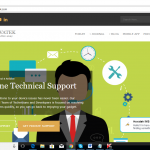South Africa is set to announce its Budget for 2018/2019 and Malusi Gigaba the country’s minister of finance will give the Budget Speech. The speech will contain South Africa’s economic growth strategy for the coming financial year. Medium and small businesses are eagerly waiting to see the government’s plans to support entrepreneurs. The government’s plans for enabling businesses to grow should also be on the top agenda. The economy has been tight on the sides of the small and medium businesses. But there are issues that affect the small and medium businesses which the government should address.
The country’s budget deficit is estimated to go higher to 4.3% that is from 3.1% of GDP in the current financial year. Furthermore, tax revenue will reduce ZAR50.8 billion less compared to earlier estimates. The government is also sourcing for funds for free tertiary education. The funds should also go to other emergency expenses. Many economists foresee an increase in the VAT. However, there might be an increase in cooperation and personal tax.
An increase in the VAT will mean a decrease in the consumer’s disposable income. This will lead to an instant effect on the small business sector. Therefore government should instead source for ways of increasing revenue via economic growth. In case it is hard to avoid VAT increase, then it should only be used in luxury goods rather than daily expenses.
Payment of around 15% of the country’s invoices is paid late. Furthermore, payment of above 8% of the invoices happens late or don’t happen. This forces small and medium businesses to write them off as bad debts. State-owned businesses and government department are part of the organizations that are fond of slow payments. However, many Budget Speeches have talked about the issue in the past. Therefore small businesses which do businesses with the public sector need practical solutions to the problem. Some of the steps include legislation and regulation. This will speed up the government procurement and payment process.
There is a water shortage in Cape Town and frequent power cut-offs in Johannesburg. Johannesburg is also having a massive challenge on its infrastructure specifically roads. Therefore the infrastructure challenges are increasing the cost of carrying out businesses. This is because businesses need to work out on ways to get out of the water and power shortages. However, the government promised to set aside billions of Rands. This will go to investment in the national infrastructure. The time is ripe for the government to set out good plans on how it will work with the local government to solve the infrastructure problems. Furthermore, businesses that undergo water and power challenges should not pay tax.
The high level of digital illiteracy and the high cost of data are some of the causes of low adoption of basic technology. The government should look at ways of reducing the numbers. So the Budget Speech should aim at bridging the digital divide. It should also aim at encouraging small businesses to embrace technology. The move can entail education support by institutions like SARS. This will help enlighten small businesses to adopt digital payroll and accounting solution. This will, therefore, make the businesses move from old ways.
The unnecessary administration has a great negative effect on South Africa’s productivity. Such loss costs the country’s businesses ZAR231 daily. This leads to a cost of more than ZAR585 million for 2018 until now. Furthermore, paperwork is still a huge problem for the businesses. The only way to reduce that is through digital work. However, the government can simplify registration of small businesses to suppliers using digital platforms. It can also work on processes like giving tax clearance certificates. This is through looking for a minor increase in the threshold before registering small businesses for VAT.
 We just launched our WhatsApp channel. Want to get the latest news from the Tech in Africa?
We just launched our WhatsApp channel. Want to get the latest news from the Tech in Africa?


